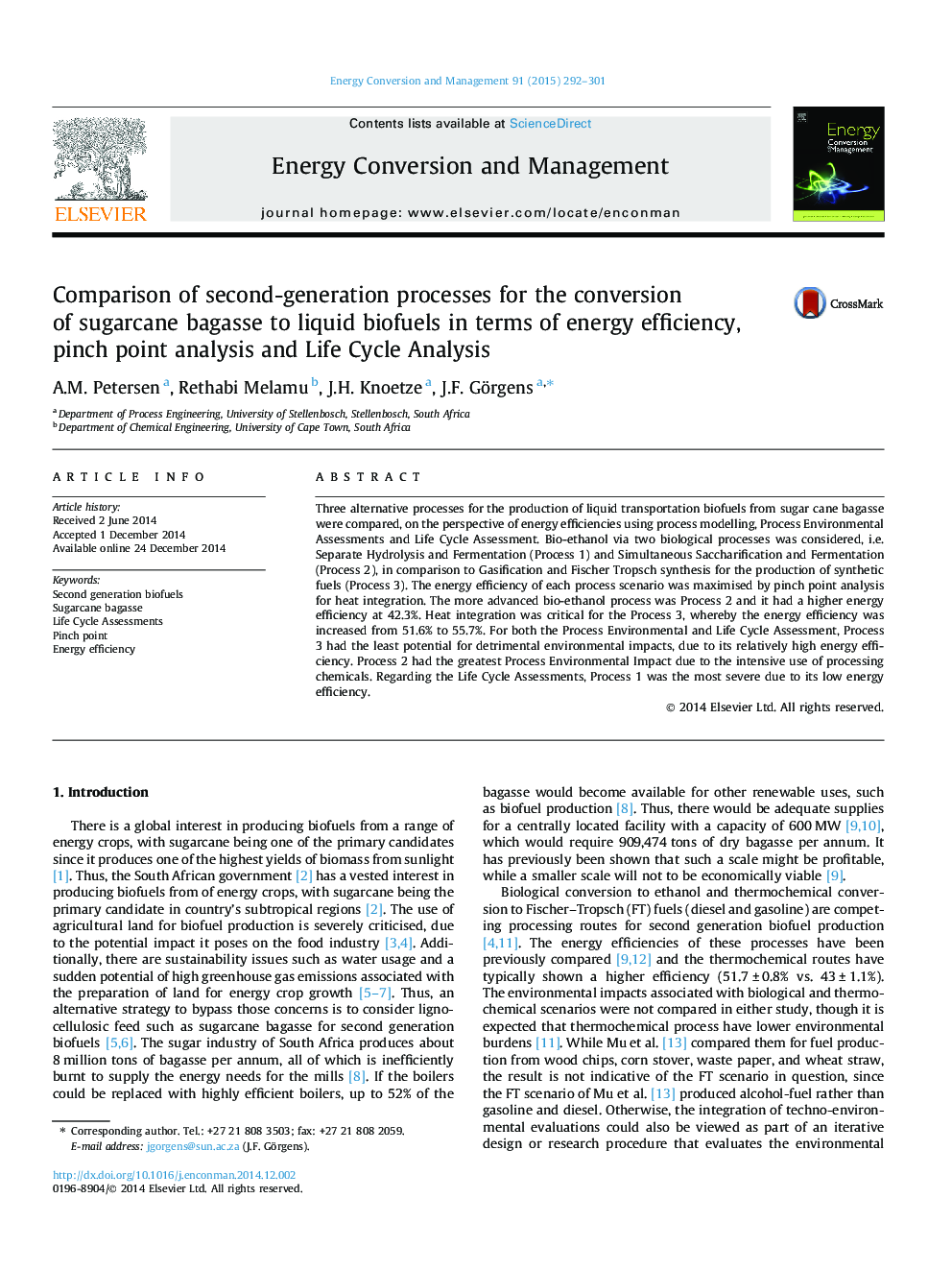| Article ID | Journal | Published Year | Pages | File Type |
|---|---|---|---|---|
| 763932 | Energy Conversion and Management | 2015 | 10 Pages |
•Process evaluation of thermochemical and biological routes for bagasse to fuels.•Pinch point analysis increases overall efficiencies by reducing utility consumption.•Advanced biological route increased efficiency and local environmental impacts.•Thermochemical routes have the highest efficiencies and low life cycle impacts.
Three alternative processes for the production of liquid transportation biofuels from sugar cane bagasse were compared, on the perspective of energy efficiencies using process modelling, Process Environmental Assessments and Life Cycle Assessment. Bio-ethanol via two biological processes was considered, i.e. Separate Hydrolysis and Fermentation (Process 1) and Simultaneous Saccharification and Fermentation (Process 2), in comparison to Gasification and Fischer Tropsch synthesis for the production of synthetic fuels (Process 3). The energy efficiency of each process scenario was maximised by pinch point analysis for heat integration. The more advanced bio-ethanol process was Process 2 and it had a higher energy efficiency at 42.3%. Heat integration was critical for the Process 3, whereby the energy efficiency was increased from 51.6% to 55.7%. For both the Process Environmental and Life Cycle Assessment, Process 3 had the least potential for detrimental environmental impacts, due to its relatively high energy efficiency. Process 2 had the greatest Process Environmental Impact due to the intensive use of processing chemicals. Regarding the Life Cycle Assessments, Process 1 was the most severe due to its low energy efficiency.
